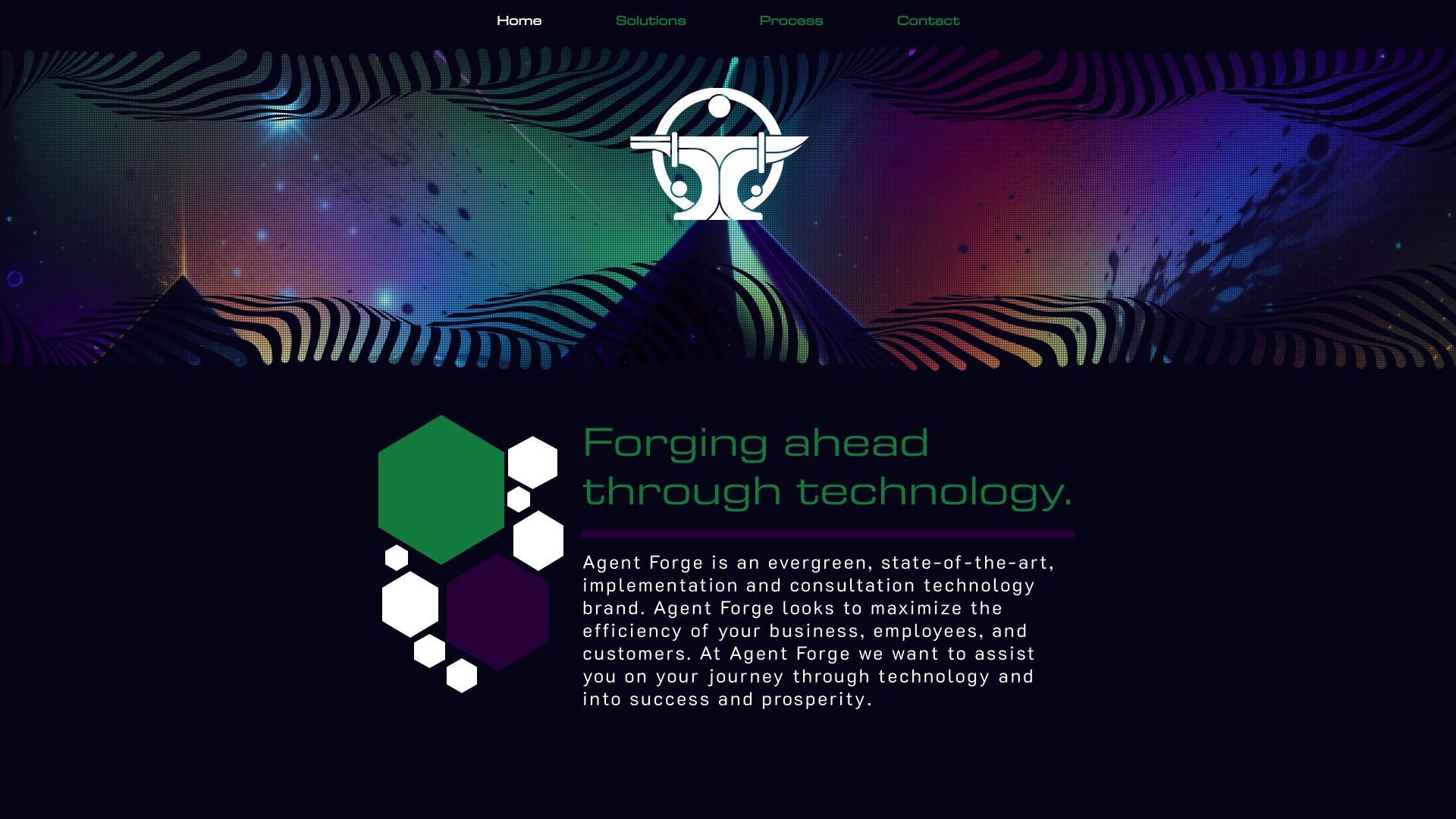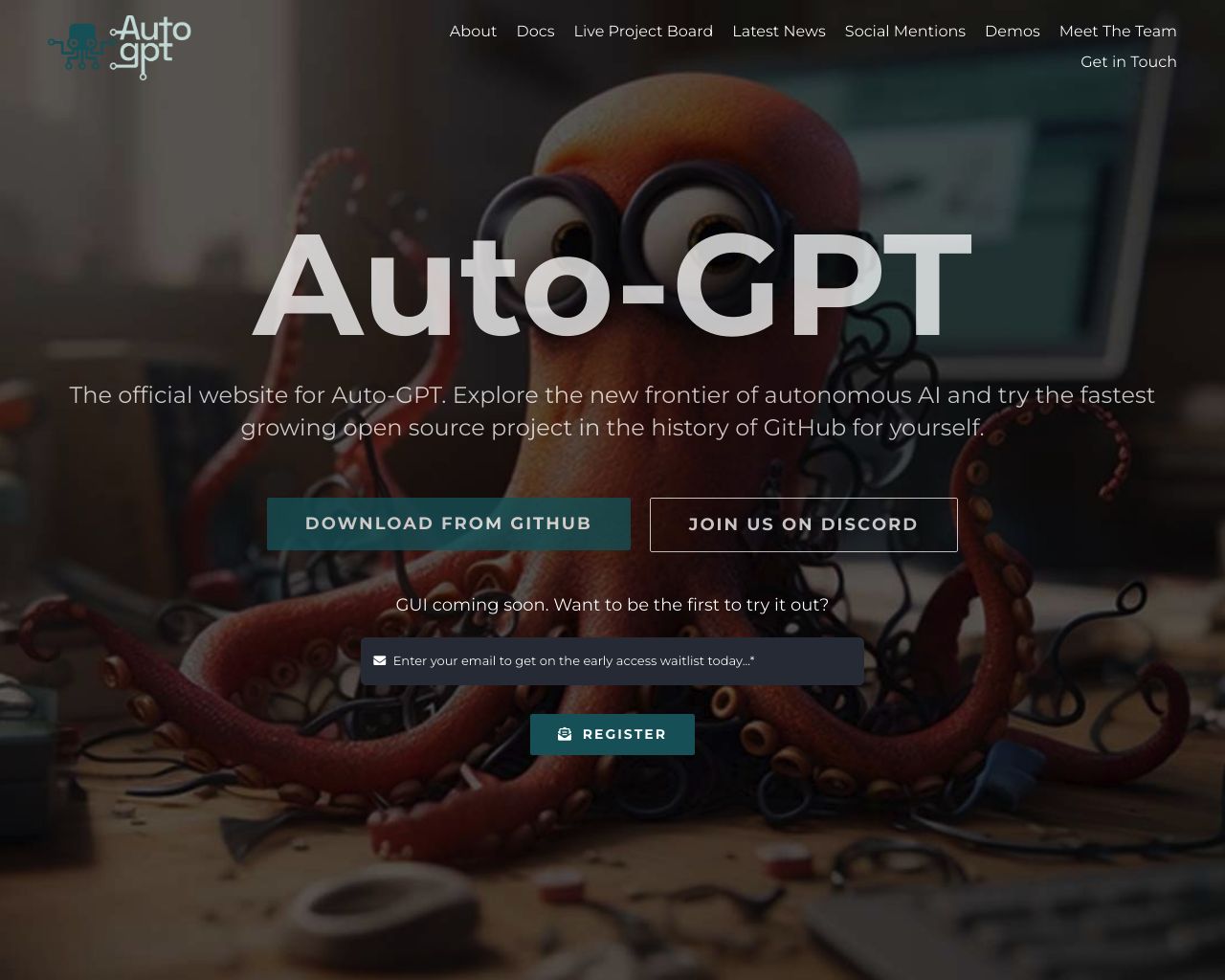Agent Forge vs. AutoGPT: AI Agent Platforms Compared
AI agent development platforms have transformed how businesses harness artificial intelligence. Agent Forge vs. AutoGPT stand out as powerful tools, each offering unique approaches to building AI solutions. This comparison examines their key features, strengths, and limitations to help developers and organizations choose the right platform for their needs.
We’ll explore how these solutions stack up against SmythOS, a comprehensive AI development platform that combines ease of use with advanced capabilities. Whether you’re a seasoned developer or new to AI, this guide will equip you with essential insights to navigate the evolving landscape of AI agent creation.
Agent Forge Overview
Agent Forge empowers developers to create, host, and manage AI agents through its open-source Python framework. The platform targets developers seeking to build autonomous agents and cognitive architectures for various applications.


Agent Forge supports major Large Language Models like Claude, GPT, and self-hosted options via Oobabooga. Its flexible agent memory management utilizes ChromaDB, enabling persistent context across interactions. The framework excels in orchestrating multi-agent scripts and complex workflows, accelerating development with pre-built agent templates.
Agent Forge supports major Large Language Models… Its flexible agent memory management utilizes ChromaDB, enabling persistent context across interactions.
The platform’s prompt engineering system guides agent behavior, while easy integration of custom data sources and third-party APIs enhances functionality. Shared utility classes for storage, tools, and Natural Language Processing tasks streamline development processes.
Agent Forge’s low-code approach requires some programming knowledge, potentially limiting accessibility for non-technical users. The absence of a visual builder or no-code editor may increase the learning curve for beginners. However, this approach offers greater flexibility for experienced developers to create tailored solutions.
The framework’s scalability and adaptability suit various AI projects, from prototyping AI assistants and chatbots to automating business workflows and developing intelligent process automation bots. Its modular and extensible nature positions it as a solid foundation for long-term AI initiatives, particularly appealing to developers and organizations seeking customizable AI agent solutions.
AutoGPT Overview
AutoGPT revolutionizes AI development by leveraging OpenAI’s GPT-4 or GPT-3.5 models to create autonomous agents capable of complex problem-solving. This open-source platform empowers developers to build AI solutions that can break down tasks, process multiple data types, and operate with minimal human intervention.
AutoGPT revolutionizes AI development by leveraging OpenAI’s GPT-4 or GPT-3.5 models to create autonomous agents capable of complex problem-solving.
AutoGPT’s strength lies in its integration with cutting-edge language models, enabling the creation of AI agents with advanced natural language processing capabilities. These agents excel at tackling intricate tasks by dividing them into manageable sub-tasks, showcasing impressive problem-solving skills. The platform’s multimodal support allows agents to handle diverse inputs, including text and images, broadening their applicability across various domains.
Developers benefit from AutoGPT’s autonomous functionality, which allows AI agents to perform tasks independently. This feature proves invaluable for applications requiring continuous operation with reduced human oversight. The platform also provides detailed audit logs, enhancing transparency and facilitating effective troubleshooting and performance analysis.


AutoGPT offers flexibility in deployment, supporting both local and cloud-based environments. This versatility allows for iterative testing and seamless production deployment. The platform’s use of open-source components, such as Docker, underscores its commitment to accessibility and adaptability.
While AutoGPT excels in many areas, it lacks certain features found in more comprehensive AI development platforms. The absence of a visual builder or no-code editor may present challenges for users without extensive programming experience. Additionally, the platform does not offer built-in explainability tools or a dedicated debug mode, which could impact the ease of development and troubleshooting for some users.
AutoGPT’s powerful integration with advanced language models and its focus on autonomous, problem-solving agents position it as a valuable tool for developers seeking to create sophisticated AI solutions.
Despite these limitations, AutoGPT’s powerful integration with advanced language models and its focus on autonomous, problem-solving agents position it as a valuable tool for developers seeking to create sophisticated AI solutions. Its ability to handle complex tasks and support multi-agent collaboration makes it particularly suited for applications requiring advanced AI capabilities and minimal human intervention.
Feature Comparison
Agent Forge and AutoGPT offer distinct approaches to AI agent development, with notable differences in their core components and security features. Agent Forge provides a flexible, low-code Python framework for building autonomous agents, while AutoGPT leverages advanced language models for more sophisticated problem-solving capabilities.
Agent Forge excels in its customizable agent memory management using ChromaDB and support for orchestrating multi-agent scripts. However, it lacks a visual builder and no-code editor, potentially limiting accessibility for non-technical users. In contrast, AutoGPT offers powerful integration with cutting-edge language models like GPT-4, enabling complex task decomposition and autonomous operation. AutoGPT also provides detailed audit logs for enhanced transparency, a feature absent in Agent Forge.
Security-wise, both platforms have room for improvement. Neither explicitly mentions data encryption or IP control features. Agent Forge supports OAuth for Google API integration, while AutoGPT’s security measures focus on aligning AI behavior with organizational goals. SmythOS outperforms both in this area, offering robust security features including data encryption, OAuth, and IP control.
| Agent Forge | AutoGPT | SmythOS | |
|---|---|---|---|
| CORE FEATURES | |||
| Hosted Agents (Dev, Production) | ✅ | ❌ | ✅ |
| Visual Builder | ❌ | ❌ | ✅ |
| No-Code Options | ❌ | ❌ | ✅ |
| Memory & Context | ✅ | ❌ | ✅ |
| Explainability & Transparency | ❌ | ❌ | ✅ |
| Debug Tools | ❌ | ❌ | ✅ |
| Multimodal | ❌ | ❌ | ✅ |
| Audit Logs for Analytics | ❌ | ✅ | ✅ |
| Work as Team | ❌ | ❌ | ✅ |
| Bulk Work | ❌ | ✅ | ✅ |
| Agent Work Scheduler | ❌ | ❌ | ✅ |
| Logs & Monitoring | ❌ | ✅ | ✅ |
| SECURITY | |||
| Constrained Alignment | ❌ | ❌ | ✅ |
| Data Encryption | ❌ | ❌ | ✅ |
| OAuth | ❌ | ❌ | ✅ |
| IP Control | ❌ | ❌ | ✅ |
| COMPONENTS | |||
| Foundation AIs | ❌ | ✅ | ✅ |
| Huggingface AIs | ❌ | ❌ | ✅ |
| Zapier APIs | ❌ | ❌ | ✅ |
| All other APIs, RPA | ❌ | ❌ | ✅ |
| Classifiers | ❌ | ❌ | ✅ |
| Logic | ❌ | ❌ | ✅ |
| Data Lakes | ❌ | ❌ | ✅ |
| DEPLOYMENT OPTIONS (EMBODIMENTS) | |||
| Deploy as API | ❌ | ✅ | ✅ |
| Deploy as Webhook | ❌ | ❌ | ✅ |
| Staging Domains | ❌ | ❌ | ✅ |
| Production Domains | ❌ | ✅ | ✅ |
| API Authentication (OAuth + Key) | ❌ | ❌ | ✅ |
| Deploy as Site Chat | ❌ | ❌ | ✅ |
| Deploy as Scheduled Agent | ❌ | ❌ | ✅ |
| Deploy as GPT | ❌ | ✅ | ✅ |
| Scalability | ❌ | ❌ | ✅ |
| DATA LAKE SUPPORT | |||
| Hosted Vector Database | ❌ | ❌ | ✅ |
| Sitemap Crawler | ❌ | ❌ | ✅ |
| YouTube Transcript Crawler | ❌ | ❌ | ✅ |
| URL Crawler | ❌ | ❌ | ✅ |
| PDF Support | ✅ | ❌ | ✅ |
| Word File Support | ❌ | ❌ | ✅ |
| TXT File Support | ✅ | ❌ | ✅ |
Best Alternative to Agent Forge and AutoGPT
SmythOS redefines AI agent development as an advanced, user-friendly alternative to Agent Forge and AutoGPT. Our platform combines powerful AI capabilities with an intuitive interface, making sophisticated AI solutions accessible to users of all skill levels.
We excel in ease of use, offering a visual builder and no-code options that Agent Forge and AutoGPT lack. This allows even non-technical users to create and deploy AI agents quickly. Our feature set spans hosted agents, multi-agent collaboration, and seamless integrations, surpassing the limited offerings of our competitors.
SmythOS redefines AI agent development as an advanced, user-friendly alternative to Agent Forge and AutoGPT. Our platform combines powerful AI capabilities with an intuitive interface…
Unlike Agent Forge and AutoGPT, SmythOS provides comprehensive security measures, including data encryption, OAuth, and IP control. We also offer superior deployment flexibility, allowing users to deploy agents as APIs, webhooks, scheduled tasks, and more. This versatility enables SmythOS to address an unlimited range of use cases across industries.
Our platform’s strength lies in its holistic approach to AI development. We provide robust debugging tools, detailed analytics, and scalable infrastructure to support enterprise-level deployments. By choosing SmythOS, users gain access to cutting-edge AI technology wrapped in an accessible, powerful package that outperforms both Agent Forge and AutoGPT in key areas of functionality, security, and ease of use.
Conclusion
Agent Forge and AutoGPT offer powerful tools for AI development, each with unique strengths. Agent Forge’s flexible Python framework excels in customizable agent memory and multi-agent orchestration, appealing to developers seeking tailored solutions. AutoGPT leverages advanced language models for complex problem-solving and autonomous operation, ideal for sophisticated AI applications.
While both platforms have their merits, SmythOS emerges as the superior choice for a wide range of users. We combine the best of both worlds, offering a visual builder and no-code editor that democratizes AI development without sacrificing power or flexibility. Our platform supports multi-agent collaboration, problem-solving capabilities, and autonomous operation, rivaling AutoGPT’s strengths. Additionally, we provide robust security features, extensive API integrations, and versatile deployment options that surpass both Agent Forge and AutoGPT.
For those seeking a comprehensive, user-friendly, and scalable AI development platform, SmythOS stands out as the clear winner. Our drag-and-drop interface, pre-built templates, and support for over 300,000 integrations make AI development accessible to both technical and non-technical users. Get started with SmythOS today and experience the future of AI development – where power meets simplicity, and innovation knows no bounds.
Last updated:
Disclaimer: The information presented in this article is for general informational purposes only and is provided as is. While we strive to keep the content up-to-date and accurate, we make no representations or warranties of any kind, express or implied, about the completeness, accuracy, reliability, suitability, or availability of the information contained in this article.
Any reliance you place on such information is strictly at your own risk. We reserve the right to make additions, deletions, or modifications to the contents of this article at any time without prior notice.
In no event will we be liable for any loss or damage including without limitation, indirect or consequential loss or damage, or any loss or damage whatsoever arising from loss of data, profits, or any other loss not specified herein arising out of, or in connection with, the use of this article.
Despite our best efforts, this article may contain oversights, errors, or omissions. If you notice any inaccuracies or have concerns about the content, please report them through our content feedback form. Your input helps us maintain the quality and reliability of our information.
